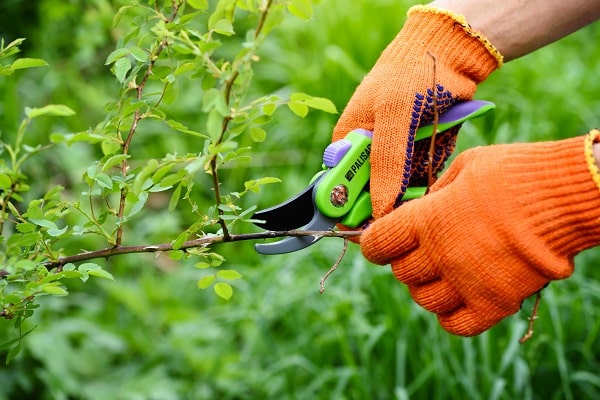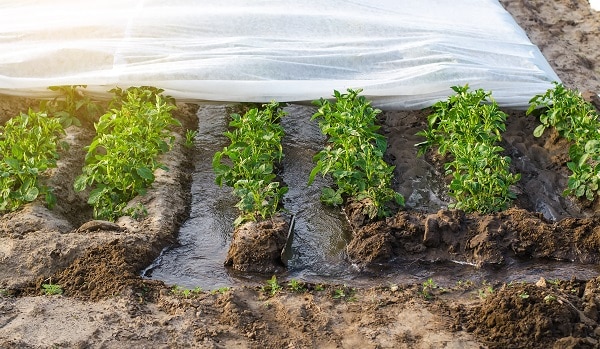Now that fall is officially here; it’s time to start thinking about winter. Your garden may not be the first thing on your mind, but it’s essential to take some steps now to ensure it is ready for the cold weather. This article will discuss how to prepare your garden for winter and what you can do to ensure it stays healthy through the colder months!
Contents
The Importance of Getting Your Garden Ready For Winter
As any seasoned gardener knows, preparing your garden for winter is essential to ensuring a healthy and productive spring season. Many tasks should be undertaken in the fall. These steps help to protect your plants from the cold weather and allow them to thrive come spring. In addition, winterizing your garden can also help to prevent pests and diseases from taking hold. By preparing your garden for winter, you can ensure it will be in tip-top shape come spring.
Clean Up Dead And Diseased Plants
As the days grow shorter and the temperatures drop, it’s time to start thinking about winterizing your garden. One of the essential steps in winter prep is cleaning up dead and diseased plants. Diseased plants can harbor diseases and pests that can overwinter and infect your healthy plants come spring. Dead plants can also provide ideal hiding spots and food sources for pests. In addition, decaying plant matter can release harmful chemicals into the soil that can damage or kill other plants. So be sure to tidy up your garden before winter sets in. Your plants will thank you for it come spring!
Last Minute Weeding
The cold weather is on its way, and that means it’s time to start thinking about how to get your garden ready for winter. One of the most important things you can do is ensure your garden is free of weeds. Weeds can compete with your plants for resources and harbor diseases that can spread to your other plants. While it’s always best to weed regularly throughout the growing season, sometimes life gets in the way, and we end up with a last-minute weed problem. If this is the case, don’t despair – there are still things you can do to eliminate those unwanted visitors. One option is to dig up the weeds by hand, which is most effective if the weeds are small and haven’t yet gone to seed. If the weeds are larger or more challenging to remove, you may need to use a hoe or other gardening tool. Another option is to use a herbicide, but be careful not to damage your other plants in the process. Whichever method you choose, ensure you dispose of the weeds properly – either by putting them in the compost or placing them in a sealed bag in the bin. With a little effort, you can ensure your garden is weed-free and ready for winter.
Prepare Soil For Spring
As the days grow shorter and the nights colder, it’s time to start thinking about putting the garden to bed for the winter, which may seem daunting, but a little preparation now will pay off come spring. One of the most important things you can do to prepare your garden for winter is to amend the soil, which means adding organic matter, such as compost or manure, to improve the structure and drainage. Fall is also a good time to add lime to the soil if needed. Just be sure to follow the directions on the package, as too much lime can be just as detrimental as too little. Once the soil is ready, you can plant winter crops such as kale, brussels sprouts, and onions. These hardy vegetables will withstand even the harshest conditions and provide you with fresh produce all winter long. Just be sure to protect them from frost by mulching heavily around the base of each plant. With a little planning and preparation, your garden will be ready to weather whatever winter throws its way. And come spring, you’ll be one step ahead of the game.
Prune Perennials
As the days grow shorter and the nights cooler, it’s time to start thinking about getting your garden ready for winter. One of the most critical tasks is to prune perennials, which helps to encourage new growth in the spring and also helps to control the size and shape of the plant. When pruning, remove any dead or diseased leaves and stems. You should also cut back any straggly or overgrown growth. Once you’ve finished pruning, give your plants a good watering, which will help them recover from the stress of pruning and encourage new growth. With a little preparation, you can ensure that your garden will look its best-come springtime.
Compost
As the days grow shorter and the temperatures drop, it’s time to start thinking about getting your garden ready for winter. One of the most important things you can do is add a layer of compost. Compost is rich in nutrients and helps to insulate the soil, keeping it warmer in the winter and cooler in the summer. It also helps to improve drainage and aeration, which are essential for healthy plant growth. If you need help with making your compost, plenty of commercial products are available. Spread a layer of compost over your garden beds and around your plants, and you’ll give your plants a head start on the growing season.
Cover Up Your Garden Beds
As the leaves start to fall and the days grow shorter, it’s time to start thinking about getting your garden ready for winter. One of the most important things you can do is to cover up your garden beds, which will help to protect your plants from the cold weather and prevent them from being damaged by frost or snow. You can use various materials, including straw, hay, or even old blankets. Lay the material over your garden beds, and then secure it with some rocks or bricks. This simple step can go a long way toward ensuring that your plants make it through the winter months healthy and happy.
Use These Tips To Get Your Garden Ready For Winter
In conclusion, preparing your garden for winter may seem daunting, but with a little planning and preparation, you can ensure that your plants will thrive. Amend the soil, prune perennials, last minute weed, clean up debris, add compost, and cover up your garden beds to give them the best chance of surviving the colder months. And come springtime, you’ll be ready for a beautiful and bountiful garden. Happy gardening!





